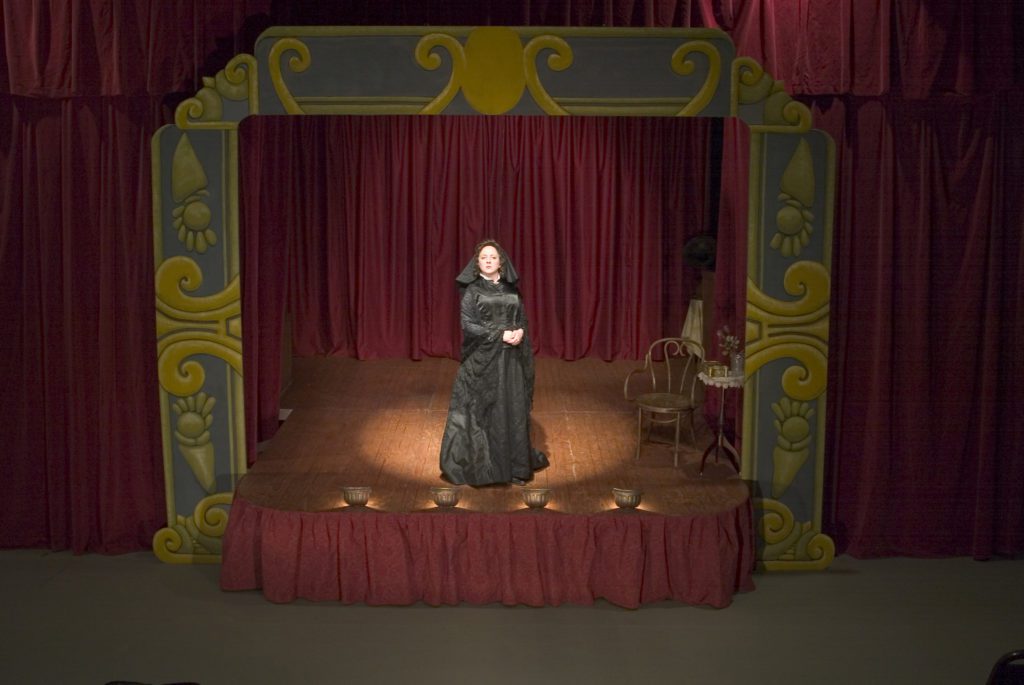A Synopsis of Butchery is a production after a con man’s heart, a strange little Victorian knick-knack of a play.
The collaborative Buntport Theater company was considering three play premises when audiences voted on this one, resulting in the story of Eleanor Fletcher Bishop, an obsessed and melodramatic grieving mother with a flair for performance.
Bishop was a real woman. Her son, Washington Irving Bishop, was a popular 19th-century mentalist known to fall spontaneously into a catatonic state. In 1889, he collapsed during one performance and was pronounced dead. An autopsy was quicky performed, and Eleanor Bishop was convinced that it was the autopsy, not the coma, that had killed her son. She spent the rest of her life traveling the country to stir up public sentiment against the doctors involved.
The title of the book she wrote is nearly irresistible: A Mother’s Life Dedicated and an Appeal for Justice to All Brother Masons and the Generous Public – A Synopsis of the Butchery of the Late Sir Washington Irving Bishop (Kamilimilianalani) A Most Worthy Mason of the Thirty-Second Degree, the Mind Reader, and Philanthropist By Eleanor Fletcher Bishop, His Broken-Hearted Mother.
Erin Rollman plays Eleanor with just that mix of fervor, self-absorption and 19th-century style. She treats the audience as her audience, here to listen to her tragic tale and exhortations for justice. In her attempt, she re-creates the death of her son and the trial of the doctors.
Her performance takes place on a wonderful approximation of a Victorian lecture hall, with the Buntport warehouse turned into a tiny, square, dramatically raked proscenium stage. The production is wholly invested in its period details, from the rolling painted scenery to the disturbingly accurate muttonchops on Brian Colonna.
Colonna, Erik Edborg and Evan Weissman play the surrounding characters, including Colonna and Edborg as the doctors and Weissman as the lost son. Colonna presents a smug, beady-eyed M.D. on trial, while Edborg has a delightfully old-fashioned nature about him and Weissman brings forth a judge describing the proceedings in the style of Walter Winchell.
But Eleanor is the center of the piece, just as her son is the center of her world. Her tragic tale is peppered with name-dropping asides and conspiracy theories. Most of all, Rollman brings us into the Victorian lecture as entertainment, where warnings of gore are actually meant to entice and integrity is a fluid concept.
Somewhere in the middle, as the trial is re-enacted, the play begins to stretch its premise, but makes up for it with a head-spinner of an ending. Too bad there’s no show on Sunday – this could be a fine Mother’s Day outing for those with a dark sense of gratitude.
-Lisa Bornstein, May 12, 2006, Rocky Mountain News
